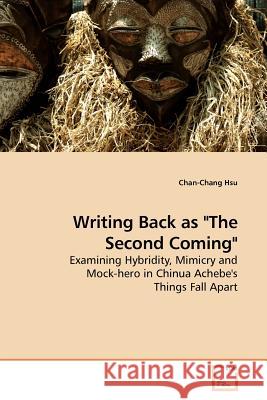Writing Back as The Second Coming » książka
Writing Back as The Second Coming
ISBN-13: 9783639184525 / Angielski / Miękka / 2009 / 90 str.
This book deals with how the concept, 'Empire writes back'counters the colonizer's inaccurate stereotype and presents the Igbo's transformation before and after the arrival of the British in Chinua Achebe's first popular and most-read novel, Things Fall Apart. The novel tells the story of the protagonist, Okonkwo failing to recreate the social, cultural and religious fabric of traditional Igbo life due to his inflexible will. Firstly, the writer focuses on the relationship between Achebe and the African literary world. In the second, we will see how Achebe subverts the source-text with the perspective of the colonized; makes the silent speak for themselves; abrogate and appropriate English language. In the third part, the discussions are on how the inevitable change brought on by British colonization causes the Igbo's disintegration and 'the second coming'. In the last, the writer concentrates on how Okonkwo's archetypal tragic hero presents the Igbo's resistance and anti- hegemony. Achebe's hybridizing of the English and Igbo languages, and using the Western form of literary expression make national identity clearly voiced out in TFA.
This book deals with how the concept,Empire writes backcounters the colonizers inaccurate stereotype and presents the Igbos transformation before and after the arrival of the British in Chinua Achebes first popular and most-read novel, Things Fall Apart. The novel tells the story of the protagonist, Okonkwo failing to recreate the social, cultural and religious fabric of traditional Igbo life due to his inflexible will. Firstly, the writer focuses on the relationship between Achebe and the African literary world. In the second, we will see how Achebe subverts the source-text with the perspective of the colonized; makes the silent speak for themselves; abrogate and appropriate English language. In the third part, the discussions are on how the inevitable change brought on by British colonization causes the Igbos disintegration and the second coming. In the last, the writer concentrates on how Okonkwos archetypal tragic hero presents the Igbos resistance and anti- hegemony. Achebes hybridizing of the English and Igbo languages, and using the Western form of literary expression make national identity clearly voiced out in TFA.











